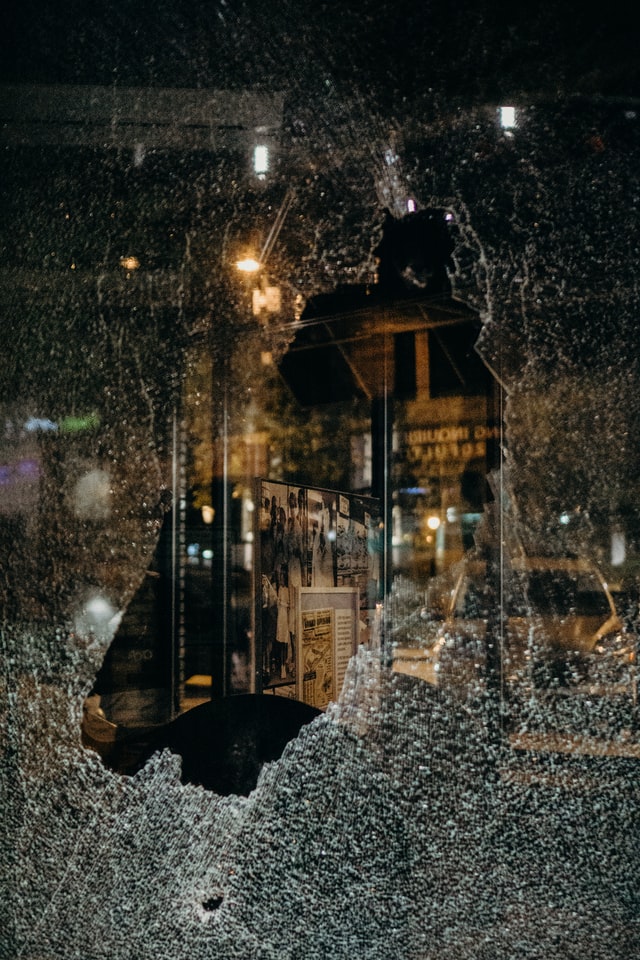As a Jewish person, I’ve been thinking a lot lately about the Warsaw Ghetto Uprising. Holocaust deniers and antisemitism aside, most of us would agree that this was a heroic last-ditch attempt to fight back against a horrific genocide. It’s also more than likely that innocent people were harmed by the resistance and property was destroyed that perhaps didn’t “deserve” to be targeted because uprisings are messy things, tensions run high, people make decisions in the heat of the moment that they might not otherwise make, and there’s no way to plan how everything will turn out regardless of whether the uprising is a success or is quelled.
I’ve heard many wise people suggest that it would be more accurate to call what we’re witnessing now a Resistance rather than a Movement, and I agree. A Movement, to me, suggests forward movement, proactive and sustained action taken against a toxic but still somewhat tolerable status quo. A Resistance brings to mind a desperate fight for survival against a status quo that is actively trying to eliminate entire groups of people. When one is fighting for survival, even the best-laid plans can go astray and there often isn’t time or energy to worry about whether or not your actions will “alienate” those who might otherwise be sympathetic to your cause (although I would posit that anyone who isn’t already fully sympathetic to your fight for survival is kind of looking for reasons to be alienated).
Our current state of affairs is, of course, not perfectly comparable to the Warsaw Uprising. The Holocaust was an acute and terrible act of genocide that in many ways happened slowly and then all at once, but that doesn’t mean more drawn-out acts of genocide and mass violence aren’t equally terrible. While occurrences of oppression and state-sanctioned murder may not always mirror one another exactly, they do share a hell of a lot of common traits, so why do we look at one act of resistance as a heroic fight for survival while another is “incorrect” and “alienating” tactics? Is it because we have the benefit of hindsight and history books telling us how to feel? Is it the fact that the violence against Black and Indigenous people in our society has been so drawn out that those of us who don’t experience it are largely inoculated against its horrors? Is it because it’s easier to declare a Right and a Wrong when something is not happening right outside our doors and can be viewed from afar? Is it because we have to grapple with the fact that, as White people, we have directly and/or inadvertently aided and abetted our society in the racist violence and death it has enacted since its conception, which threatens our view of ourselves as Good People? Is it because this means we could personally be the targets of rage from the oppressed and that scares us?
I don’t think we necessarily need public answers to these questions (the answer is pretty much Yes, All of the Above And Then Some) but they are useful questions to ask ourselves as we consider our personal reactions to the current climate so we can understand which part of this is making each of us the most uncomfortable and deconstruct it. Are we really going to wait until there’s an immediate threat of total annihilation to decide that yes, NOW we can support people fighting back for their survival? Or are we going to choose to actively aid the fight for justice instead?
I’m not here to argue whether violence as a tactic of resistance is Right or Wrong or whether you should personally condone it, as I think that’s a moot point. Regardless of whether we feel it’s the correct tactic, it has been a part of virtually every resistance and fight for freedom and justice in history. The Black Panther Party was just as much a part of the Civil Rights Movement as the March on Washington. Nelson Mandela, lauded for his nonviolence, cofounded a militant resistance against South African apartheid. Slave revolts were a critical part of exposing the horrors of American slavery and eventually ending it alongside the Abolitionist movement, the Underground Railroad, and eventually the Emancipation Proclamation/the Civil War. History is far messier (and bloodier) than we are often led to believe by our textbooks.
Nonviolence is one tool, and it can be an effective one, but pacifism is only effective on its own if your oppressor is also committed to remaining nonviolent, and that basically never happens. In the US, the cops and the government and their predecessors have been waging a violent war against marginalized populations since colonizers set foot on this soil. The violence is already here, it’s BEEN here, but those of us who are White have had the ability to largely ignore it or to condemn it and then return to the blissful ignorance and distractions of our daily lives, thus continuing to participate in it. People of color – and Black and Indigenous people in particular – have not had that luxury.
So the question is, what is the best way to direct our energy to help people fight for their survival? I’m gonna go out on a limb and say the answer is not, “get upset that people are finally so fed up they’re pushing back with more militance.”
It’s time to understand what we are witnessing and commit to listening and catching ourselves before giving in to the unhelpful kneejerk reaction to voice disapproval.

